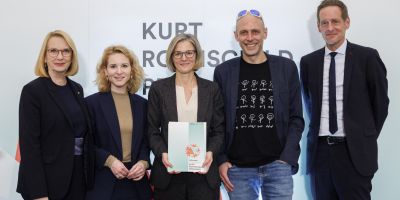Call for papers: Digital Transformations of Work and Employment in the Professions

The Centre for Employment Relations, Innovation and Change (CERIC) and Digital Futures at Work Research Centre (Digit) announce a call for papers.
CERIC and Digit warmly invite early career researchers and postgraduate researchers at all stages to submit paper abstracts ahead of the British Sociological Association Early Career Forum Regional Event, to be held on 28 September 2023.
This British Sociological Association (BSA) event aims to provide networking opportunities, a forum for the exchange of ideas, detailed feedback on papers and a chance for ECRs and PGRs to develop skills in reviewing. Additionally, the event will facilitate conversations between academics and industry professionals from a variety of sectors, with a focus on digital transformations of work and employment in the professions.
The current wave of digitalisation, which encompasses data analytics, artificial intelligence and platform-based business models, has brought change and anticipated change to roles for professionals and to role relations within the organizations where they work. This encompasses but is not limited to, legal professionals, accountants, financial advisors, management consultants, HR professionals, journalists, academics, teachers and healthcare professionals. Digital transformation of the professions raises familiar concerns, such as the extent to which digitalisation will automate routine tasks, allowing professionals to focus on skills development and improving client services (Petani et al., 2021; Spring et al., 2022), or, conversely, whether in some cases, it codifies expert knowledge, depriving professionals of what have previously been learning processes (Leibovitz et al., 2022), or even has the potential to replace professionals (Simpson, 2016; Susskind and Susskind, 2015).
Digitalisation in relation to professional work also raises a specific set of sociological concerns about whether working with or alongside data-driven technologies shifts domains of professional knowledge and expertise (e.g. Karakilic, 2020; Pettersen, 2019; Susskind and Susskind, 2015) side-lining domain knowledge and fundamentally changing the way professions are practised (van den Broek et al, 2021). Studies have examined the extent to which digitalization recasts institutionally embedded jurisdictional legitimacy (Sandholtz et al., 2019), challenging professional judgement and raising concerns among professionals about deskilling and heightened managerial surveillance (Brayne and Christin, 2021). These studies raise further questions about the extent to which these challenges or changes might influence professional identity (Alvesson and Willmott, 2002).
This event aims to bring together ECRs undertaking research on digital technologies and the professions in the sociology of work, organization studies, employment relations/industrial sociology and management studies; an area where changes wrought by digital technologies may be more subtle and incremental. The event will include a roundtable session which brings the academic research community into conversation with professionals, providing perspectives on a research agenda for studies of digitalisation of the professions and allowing ECRs and PGRs who attend to consider how to 1) develop their own research agendas and 2) design research with impact.
ECRs and PGRs are invited to submit paper abstracts of relevance and meaning to the above debates and related areas.
Submissions should be up to 500 words in length and sent to Esme Terry and Xanthe Whittaker (event organisers) via email e.terry@leeds.ac.uk no later than 24th May 2023. Please use the email subject ‘Abstract submission – BSA event’.
Decisions will be shared the week beginning 5 June 2023 and full submissions are due no later than Wednesday 13 September 2023
Both ECRs and PGRs are welcome to submit abstracts for consideration. There are a limited number of bursaries available to cover travel and accommodation expenses, for those participants who do not have access to funding through their own institutions. If you wish to apply for a bursary, please indicate this when submitting your abstract.
Further information on this event will be shared in due course.




